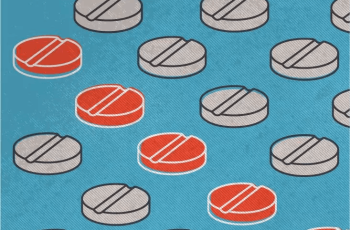A stuffy nose, also referred to as nasal congestion, is a common but frustrating condition that interferes with daily life. Many people assume that a blocked nose is due to excess mucus, but more often, it’s caused by inflammation of the blood vessels in the nasal passages. This can result from a cold, flu, allergies, or sinus infections. Fortunately, numerous home remedies and conventional treatments exist to relieve nasal congestion and improve breathing.

What Is a Stuffy Nose?
A stuffy nose occurs when nasal tissues become swollen, typically due to inflamed blood vessels. This may happen as a result of viral infections, allergic reactions, or exposure to environmental irritants. While often confused with a runny nose, nasal congestion typically involves airflow blockage, whereas a runny nose involves discharge.
Common Causes of Nasal Congestion
- Viral infections (e.g., common cold)
- Allergies and hay fever
- Chronic sinusitis
- Nasal polyps or tumors
- Deviated septum
- Environmental triggers: smoke, chemicals, pollution
- Pregnancy-related hormonal changes
- Rhinosinusitis (infectious, allergic, or nonallergic)
Some individuals with reduced immune function—such as those undergoing chemotherapy or with chronic conditions like HIV or diabetes—may be more prone to nasal blockages.
Symptoms Associated With a Stuffy or Runny Nose
While a runny nose is often a symptom itself, it may be accompanied by:
- Headaches or sinus pressure
- Post-nasal drip leading to cough or sore throat
- Difficulty sleeping or eating
- Facial discomfort
- Breathing through the mouth
Conventional Treatments for Stuffy Nose
For short-term relief, the following medical treatments are commonly used:
- Decongestants (oral or nasal sprays)
- Antihistamines for allergies
- Pain relievers like ibuprofen
- Nasal saline sprays
- Steam inhalation
- Humidifiers
- Hydration
Always consult a healthcare provider, especially if you have chronic health issues, are pregnant, or are treating young children.
Top 10 Home Remedies for a Stuffy Nose
1. Steam Inhalation
Inhaling steam from hot water helps moisten nasal passages and loosen mucus. Adding peppermint or chamomile oil enhances effectiveness.
2. Saline Spray
Over-the-counter saline nasal sprays reduce inflammation and moisturize nasal tissues. Safe for pregnant women and daily use.
3. Neti Pots
Used to irrigate the sinuses with sterile saline. Only use distilled or previously boiled water and follow usage guidelines strictly.
4. Warm Compress
Applying a warm compress to your forehead or bridge of the nose can ease sinus pressure and improve circulation.
5. Eucalyptus Oil
Inhaling eucalyptus oil may ease congestion. Use via diffuser or steam bowl. Avoid direct skin contact unless diluted.
6. Antihistamines
Effective if congestion is allergy-related. Follow dosage instructions carefully as some may cause drowsiness.
7. Decongestants
Reduce nasal swelling by constricting blood vessels. Avoid long-term use, especially in children or those with certain medical conditions.
8. Humidifiers
Running a humidifier helps moisten dry air, which can soothe irritated nasal tissues. Keep the device clean to prevent mold growth.
9. Hydration
Staying hydrated may help thin mucus and keep nasal tissues from drying out. Warm teas with lemon or ginger are soothing options.
10. Additional Natural Tips
- Drink ginger or peppermint tea
- Use a pillow to elevate your head while sleeping
- Massage sinuses gently
- Consume spicy foods or garlic-based remedies
- Try apple cider vinegar in warm water

Final Thoughts
A stuffy nose can disrupt sleep, speech, and overall comfort. While it often resolves on its own, a combination of conventional treatments and natural remedies can significantly ease symptoms. Whether it’s through steam inhalation, saline rinses, or essential oils, there are plenty of options available. Always consult a healthcare professional before starting any new treatment, particularly for persistent symptoms or if you’re managing a chronic condition.



